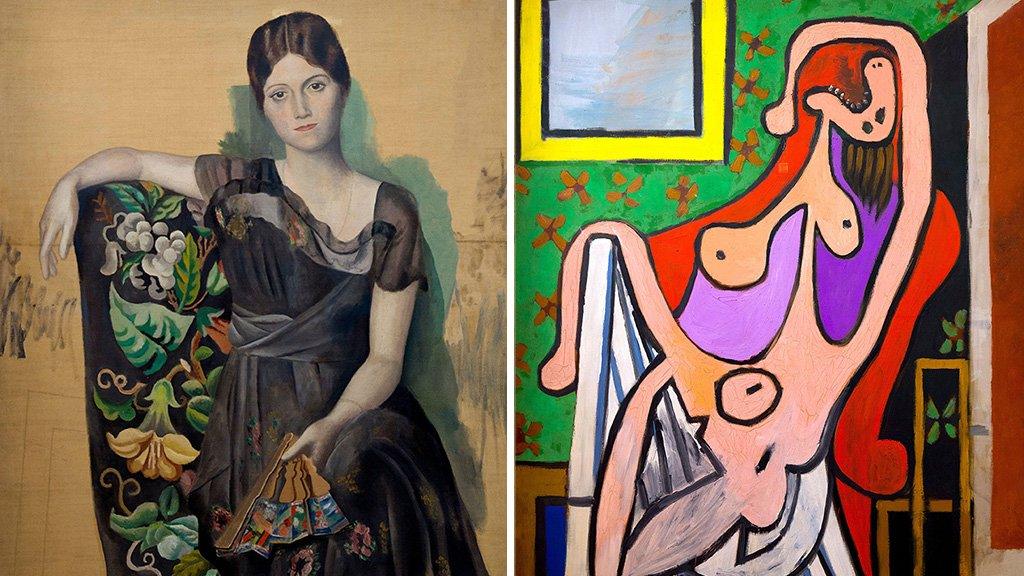Art and class: Working-class artists on breaking into exclusive world
- Published
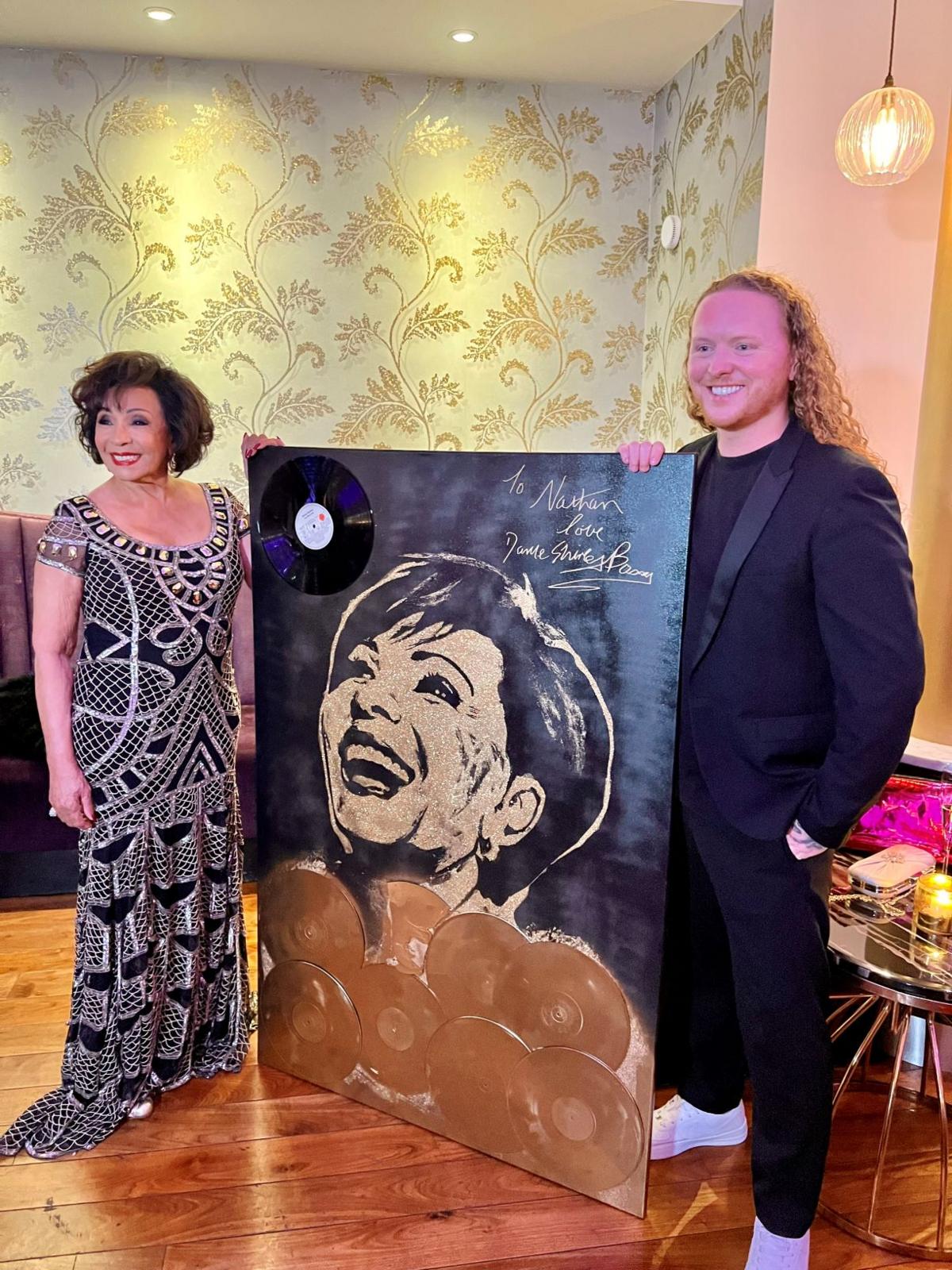
Artist Nathan Wyburn has presented portraits to the likes of Shirley Bassey (pictured), Mariah Carey and Tom Jones
From pop royalty Mariah Carey and Sir Tom Jones to actual royalty the Prince and Princess of Wales, Nathan Wyburn has created artworks of them all.
His break into the notoriously exclusive world of fine art has been unconventional - kicking off in a 2010 YouTube video where he created Simon Cowell's portrait using Marmite on toast before starring on ITV's Britain's Got Talent the following year.
Research suggests Nathan, the son of a stay-at-home mum and factory worker dad from Ebbw Vale in the south Wales valleys, is an anomaly in the world of art.
People who grew up in professional families are four times more likely, external to be in creative work than those who did not, according to the British Sociological Association.
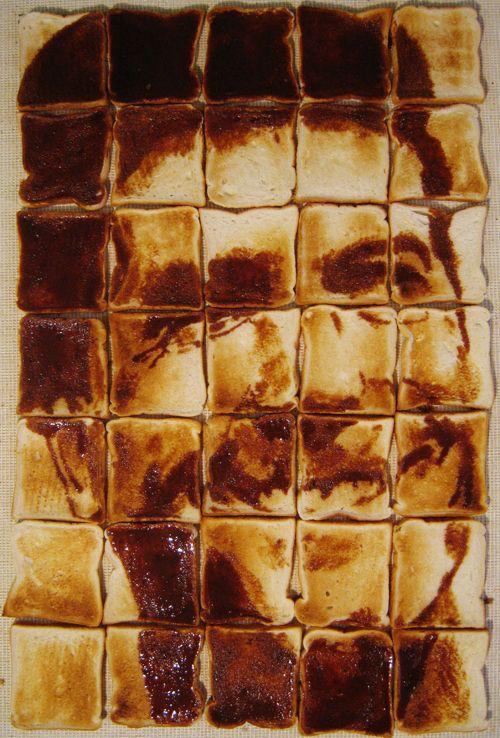
Nathan created Simon Cowell's image using toast
So how did Nathan manage to get ahead?
"Growing up in the Welsh valleys definitely gave me a determination to want to do well," said Nathan.
"I'm very proud to come from Ebbw Vale."
Growing up, being an artist did not seem like a realistic prospect.
"[My parents] were very concerned that it wasn't really a profession that could bring money in for me," he said.
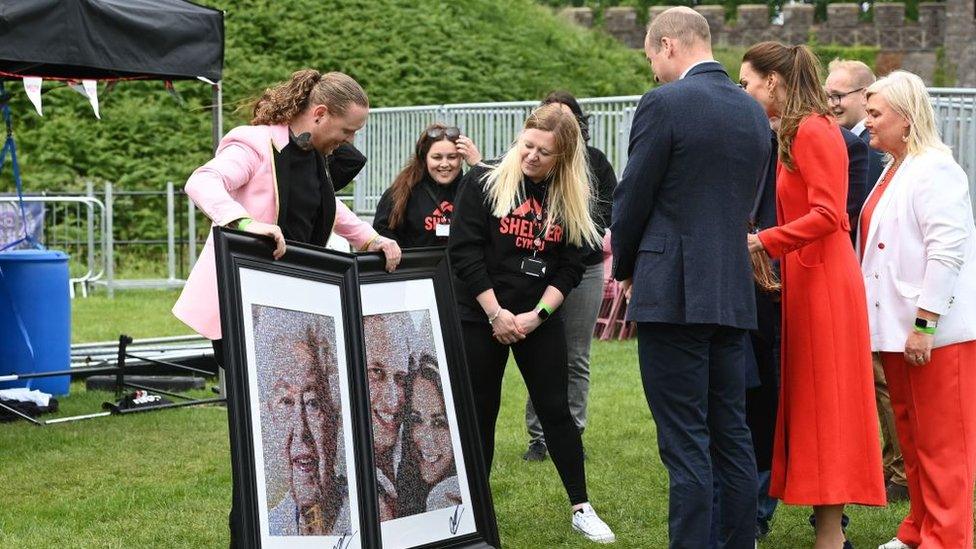
Nathan welcomed the then Duke and Duchess of Cambridge to Cardiff Castle in June 2022 with portraits of them and the Queen
"I had the support there, but there was always a lot of concern of 'how do you make a living out of this?'."
Nathan attributes his success partly to his use of social media, bypassing traditional gatekeepers of the art world.
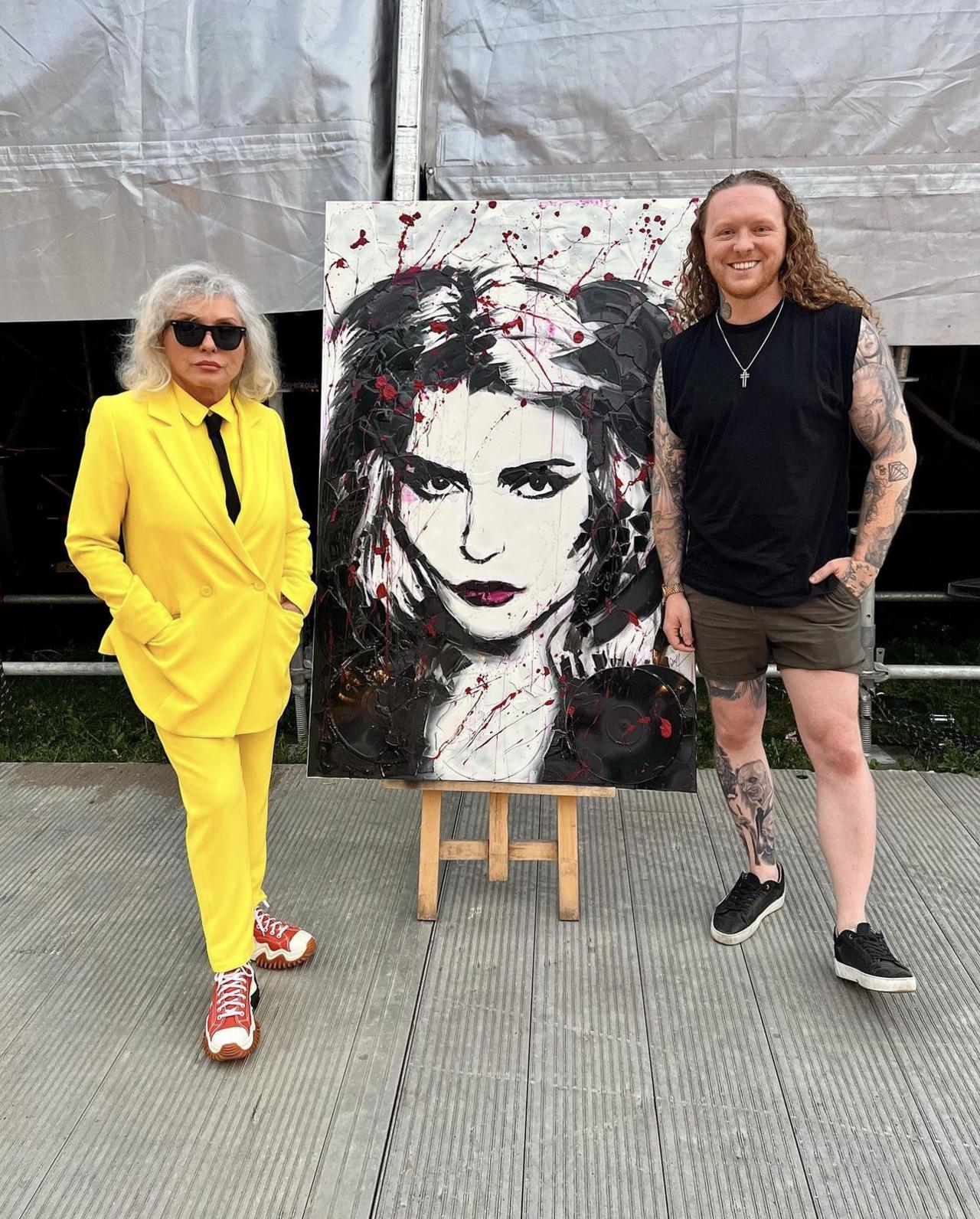
Nathan Wyburn with Debbie Harry of Blondie in June
"We are living in a slightly different world now where anyone can make something of themselves using social media and the internet and you can quite literally build a career and build a brand for yourself," he said.
He said his working-class background and watching his dad "work around the clock" at the factory taught him strong work ethics, and not having money for expensive materials meant he had to be more creative.
"I was buying things like a loaf of bread to make a toast artwork instead of a canvas that would have cost £30 and some oil paints that would have cost £100," he said.
Nathan is yet to have exhibitions at any of the UK's most prestigious galleries - "not for want of trying" - but is happy to be exhibiting in shopping centres, pubs or the street.
"Quite often there's a bit of a fear towards going into art galleries - 'I can't really go in there, I'm not posh enough' or whatever and I've tried to break those barriers down a little bit," he said.
He doesn't see being working class as a barrier to building a career in art.
"If you put a lot of hard work in you will get somewhere. It is just a slightly trickier start, I guess."
International Body of Art, an organisation which promotes equal opportunities for underrepresented artists, said its latest research showed 31% of working-class art professionals have been unable to progress in their careers due to having no connections.
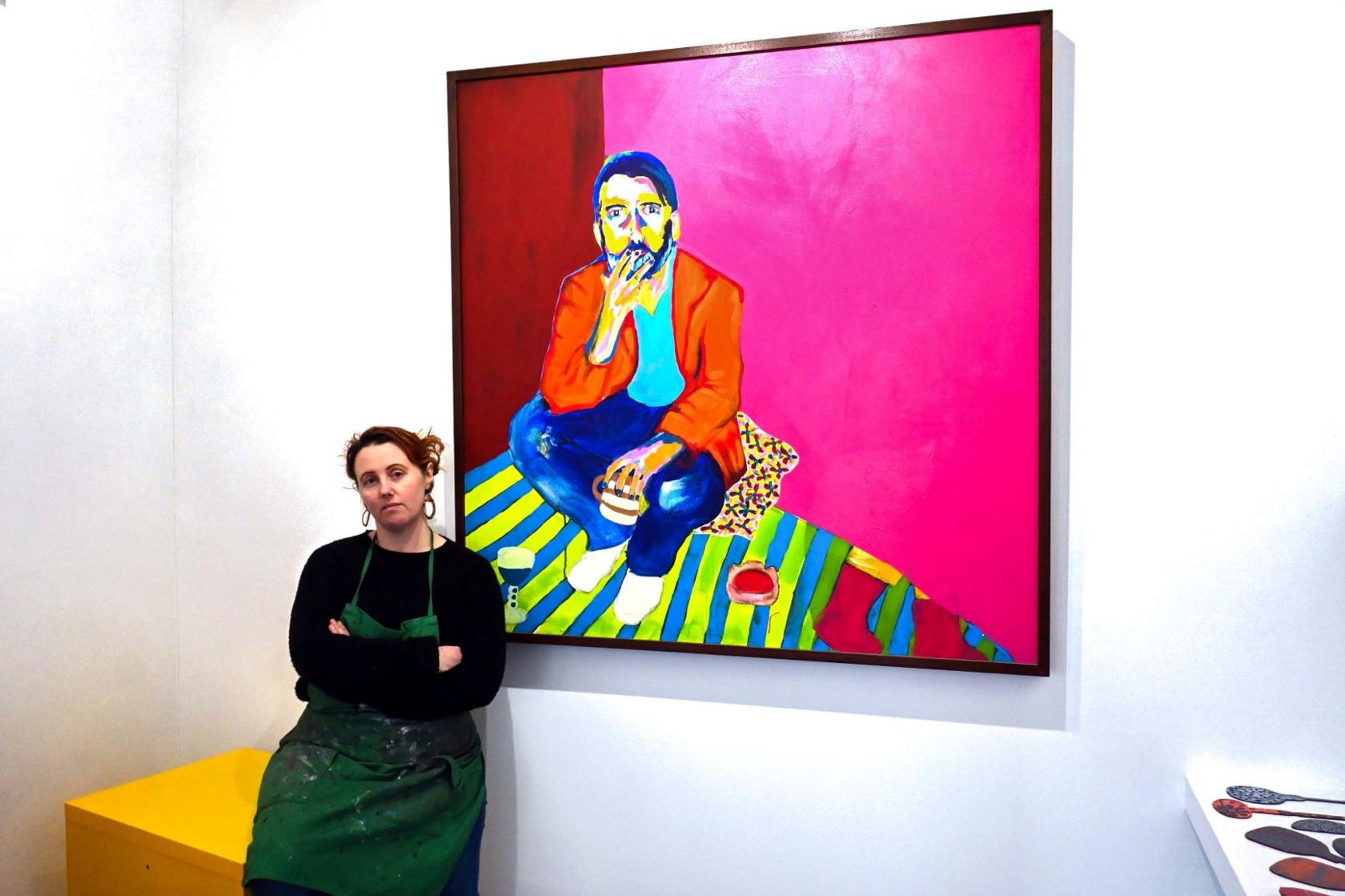
Natalie Chapman says working-class artists can struggle to get their work into galleries
Artist Natalie Chapman's work is informed by her difficult childhood where her parents were addicted to drugs and unemployed and the family moved around frequently.
For several years the family even lived in a barn with no electricity and used candles for light.
"The difficulty is getting seen in the art world if you're not from a sort of better class," said Natalie, from Llannon in Ceredigion.
"My friend calls it 'the gatekeepers', which I think is a good analogy - there's a clique and a group and you have to really try to push past that."
The experience of taking her ailing dad to one of her gallery openings cemented her sense of being an outsider.
"He was on oxygen, he was in a giant onesie that me and my sister had bought him from Primark because it was what we could afford and what we could get on him," she said.
She said the atmosphere changed as soon as they entered the room.
"People just like to go to these things and have their wine - everybody wanted to talk about the work until they're faced with the reality of what work is about," she said.
"That was quite a significant moment for me because it sort of really spurred me on in terms of painting, because I was more eager to tell the story."
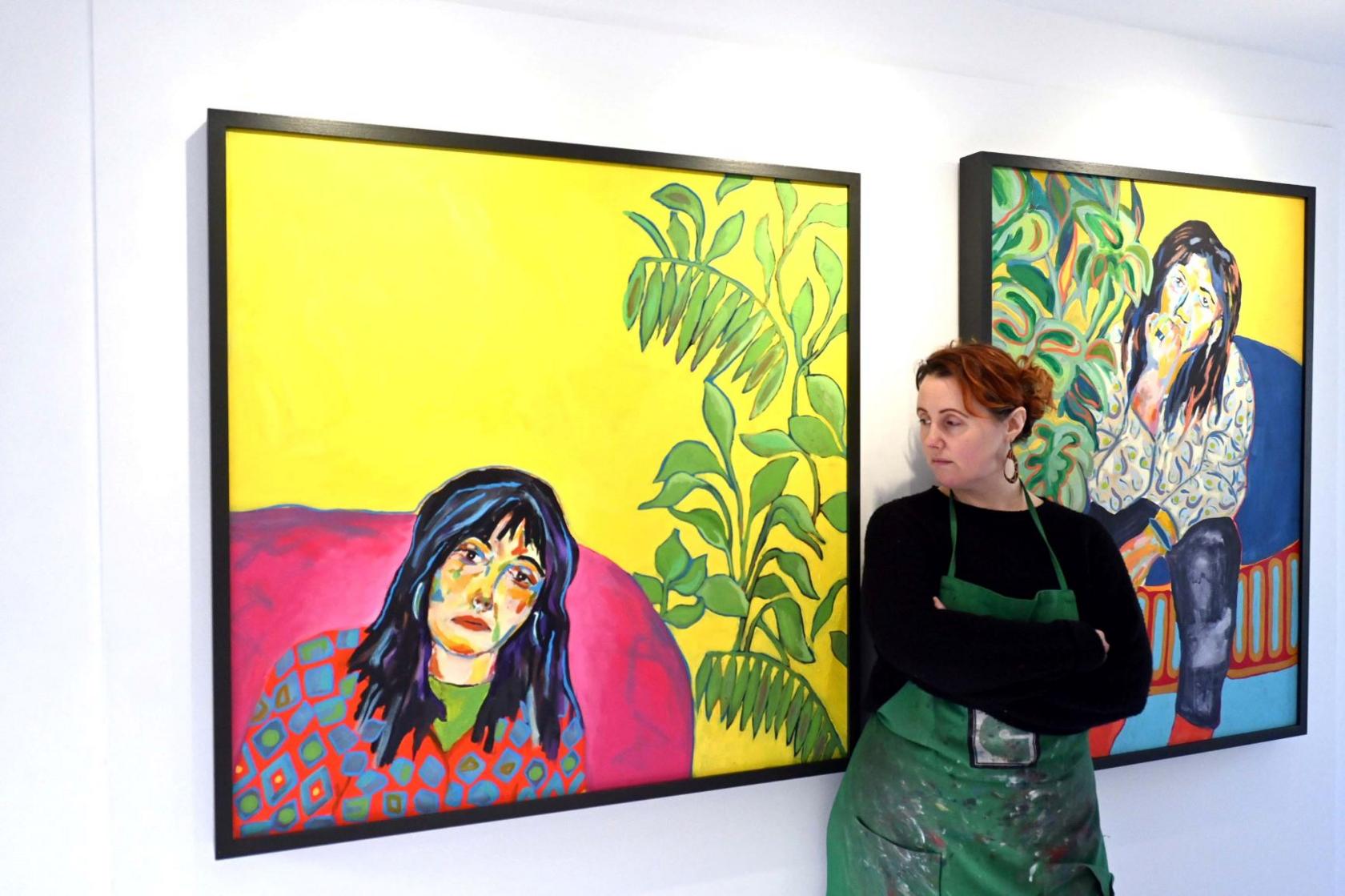
Natalie's work is autobiographical, drawing from her complicated childhood
Natalie said if it had not been for day trips put on by social services she would have grown up with no exposure to art.
"Mainly it's people with money who can afford to take the kids to art classes or whatever," she said.
For six years Natalie, then a single mum, studied part-time at University of Wales Trinity Saint David in Carmarthen, relying on her best friend to look after her children.
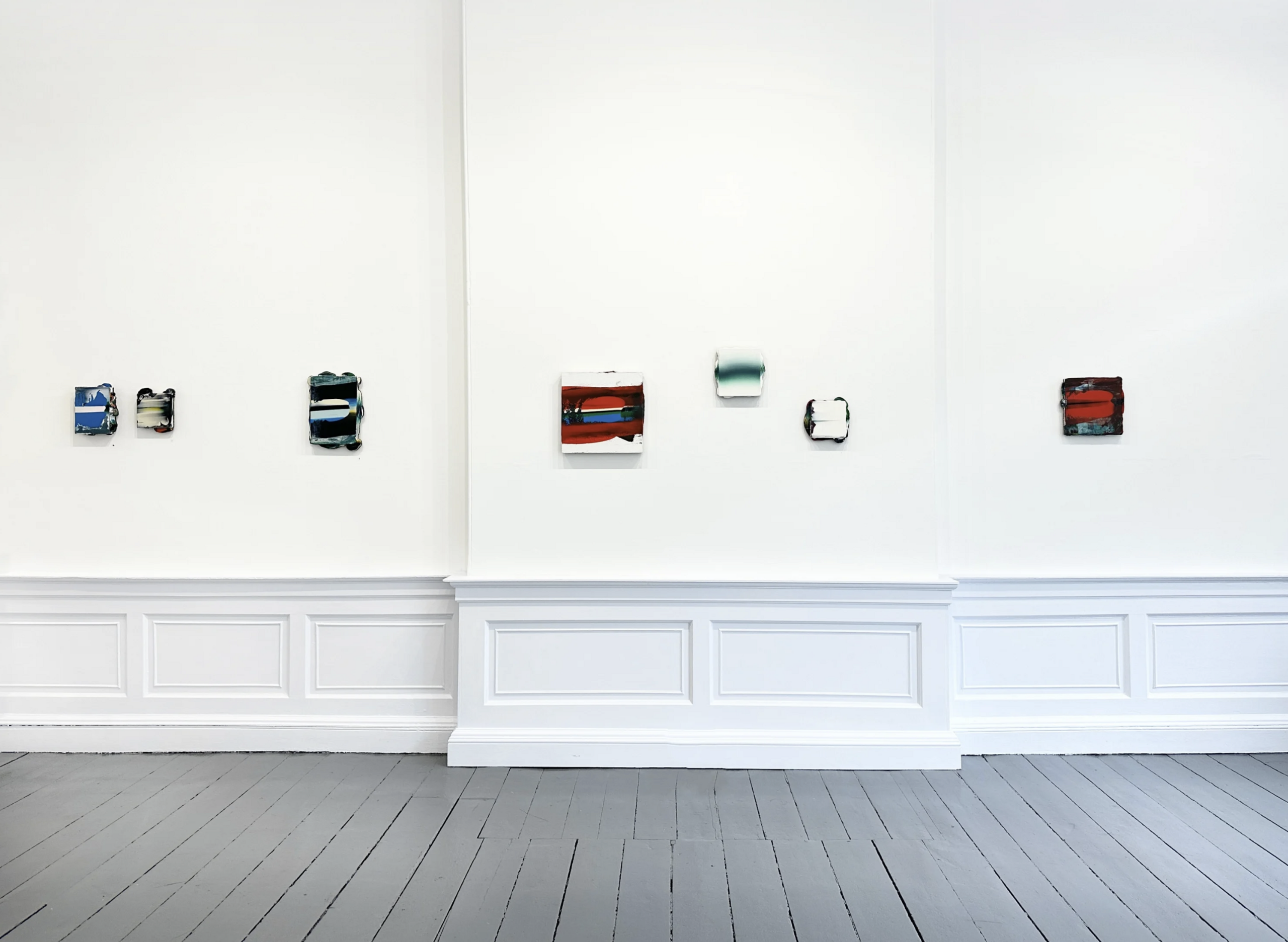
Elfyn Lewis recently had an exhibition in Edinburgh
"The world opened up while I was there... [but] when you leave there you have to find that stuff for yourself, that's when it get tricky," she said.
Since graduating she has often worked free to try to make a name for herself. She also teaches and frames pictures to supplement her earnings from selling art.
She wants to see galleries exhibiting work by artists from a more diverse range of backgrounds.
"If you only allow well-trained, well-to-do people access to fine art you're going to get the same repetitive story being told," she said.
"There's a million kids who go through similar to what I went through... and if the art world is not telling everyone's story then what is the point of it?".
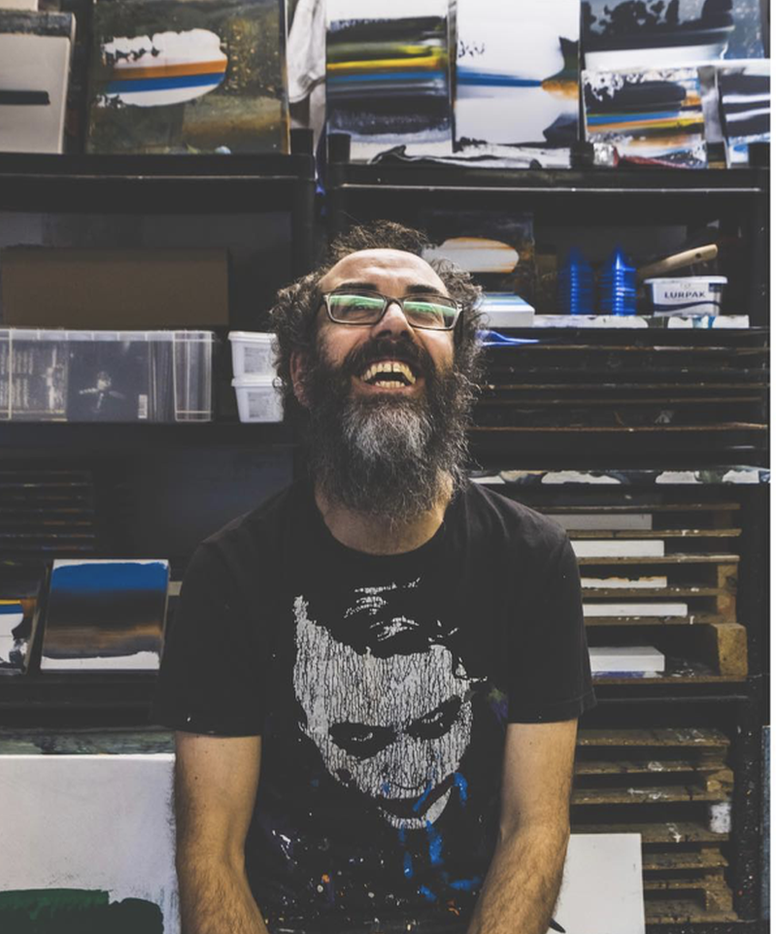
Artist Elfyn Lewis would like to see people in the arts supported with a universal basic income
Over a 25-year career, abstract painter Elfyn Lewis has won numerous awards, including the Gold Medal for Fine Art in the National Eisteddfod in 2009 and the prestigious Welsh Artist of the Year award in 2010.
Elfyn was raised in Porthmadog, Gwynedd, by his mother who worked in a record shop and dad who had various jobs including railway worker, fishmonger and later salesman.
Short-sighted and colour blind, a career as an artist was not on the cards for Elfyn but after encouragement from a teacher led him to study art at university it slowly began "falling into place".
He said there was nepotism in the art world "as in any walk of life" but the biggest difficulty was keeping the money coming in.
"You tend to be having another job or two jobs to fund what you want to be doing," he said.
He would like to see people in the arts supported with a universal basic income.
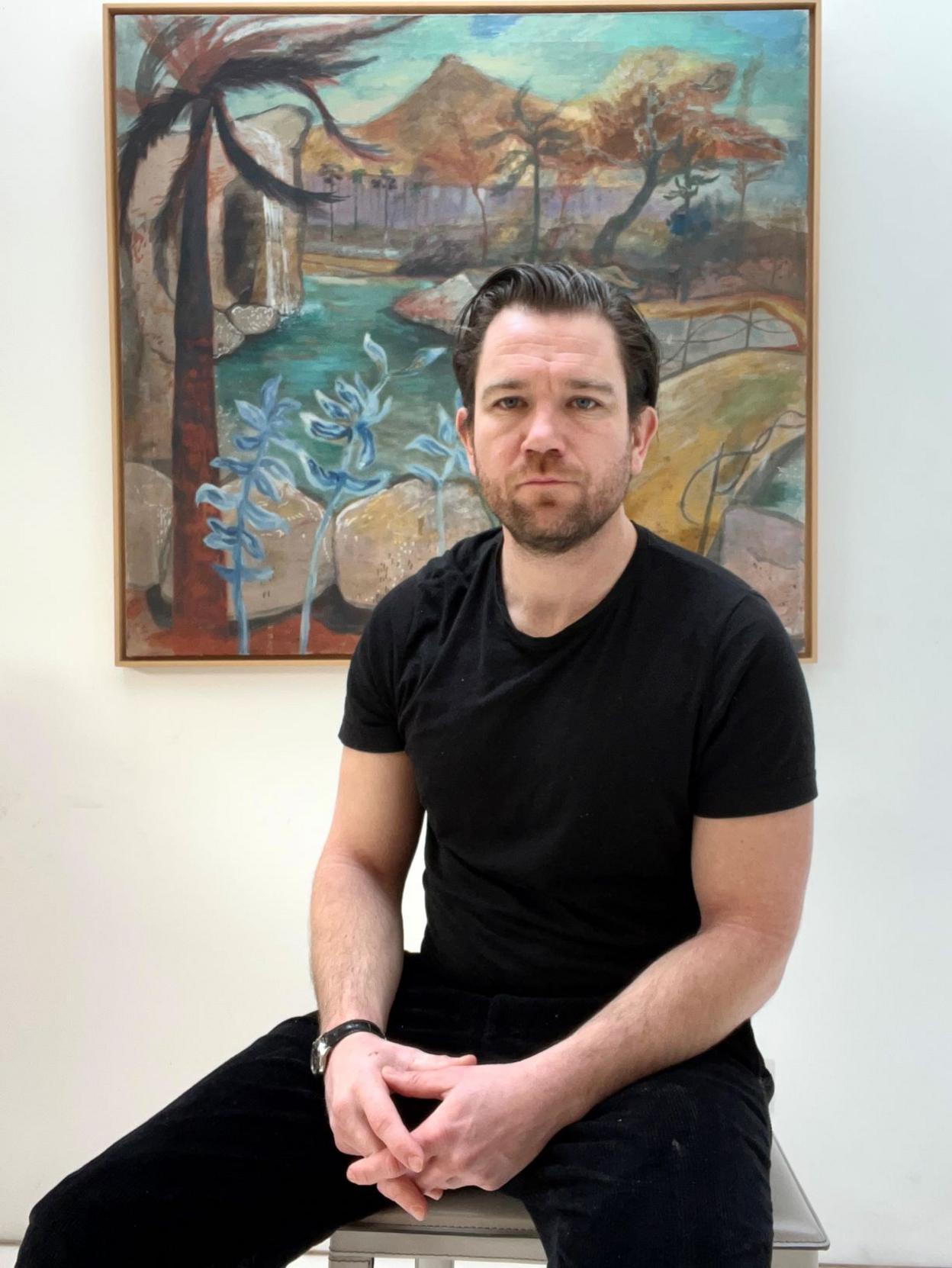
Dan Llywelyn Hall says if it wasn't for his working-class upbringing he doesn't think he would be working as an artist
Painter Dan Llywelyn Hall said his working-class background had given him a "steeliness" to succeed.
Dan, who has exhibited in prestigious venues such as the Saatchi Gallery, The National Portrait Gallery, National Museum of Wales and Windsor Castle, became the first artist-in-residence at the Cannes Film Festival in 2015.
Raised in Barry, Vale of Glamorgan, by his electrician dad and secretary mother, he said he was not exposed to art.
Despite this, he attributes much of his success to his background.
"I don't think I'd be an artist now if I came from a [middle or upper class] background," he said.
"I probably would have listened to much more sensible advice and probably steered more by earning more money and keeping up with the Joneses."

FANCY A LAUGH?: Join Rhod Gilbert as he tries out different jobs across Wales
BINGE-WORTHY BOX SETS: Everyone is talking about these award-winning dramas...

- Published1 October 2023
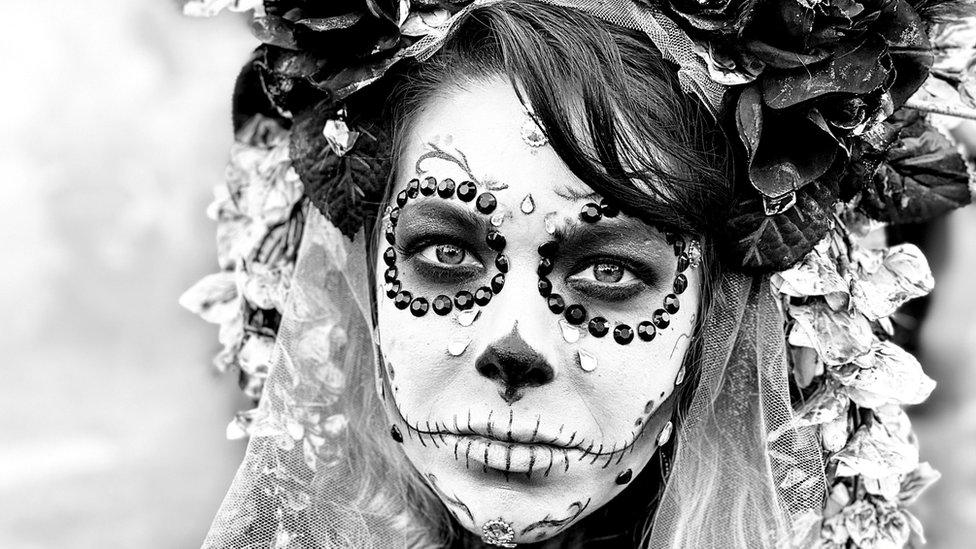
- Published2 October 2023
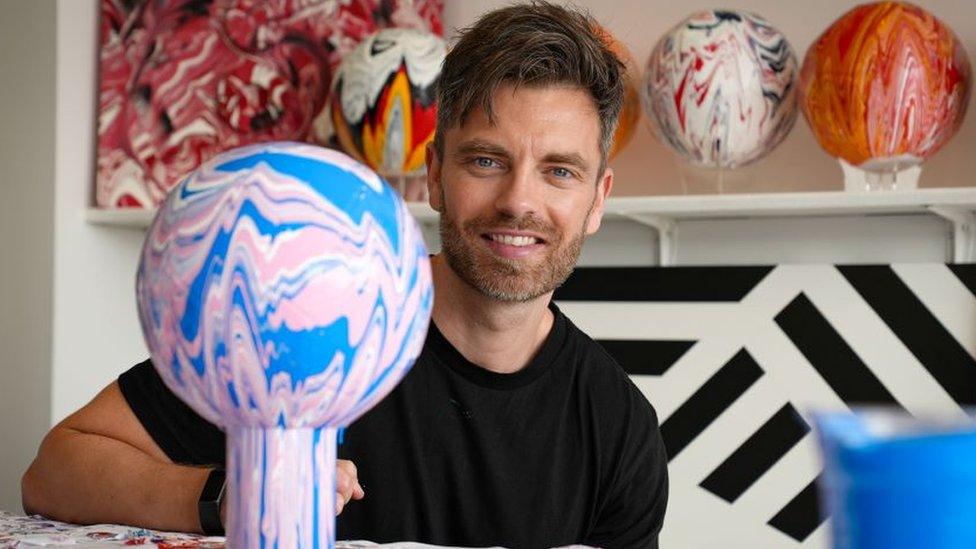
- Published17 July 2023

- Published23 September 2023
